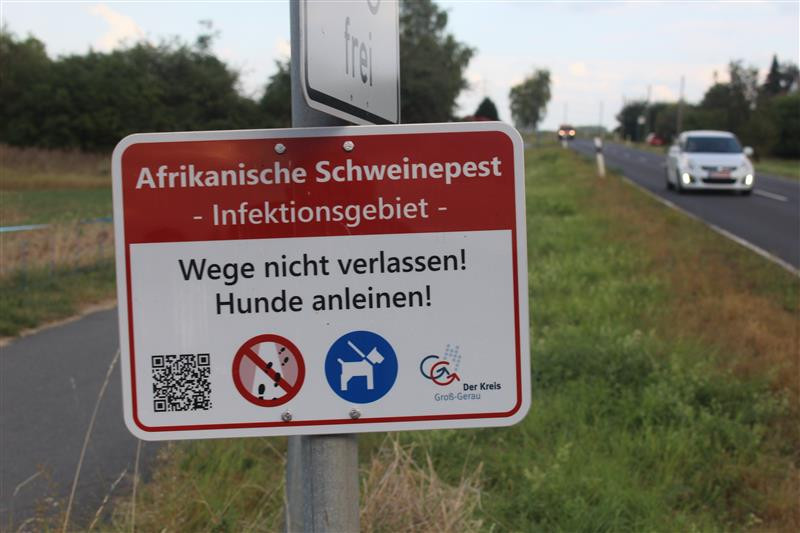ASF Germany: Many dead wild boar in Hesse state

It looks like the African Swine Fever (ASF) virus in western Germany isn’t going to be over any time soon. In the Bergstraße district in the south of the state Hesse, the death toll has risen considerably amongst the wild boar population. This has prompted authorities to expand the current core zones.
In this particular district, the 1st infected animal was found on 26 July, according information supplied by the World Organisation for Animal Health (WOAH). By early October, however, that number had grown to 74, according to data provided by the state Hesse. Outbreaks have been confirmed from the towns Einhausen, Bürstadt and Biblis, the German agricultural title Top Agrar added.
Many cases were found during a large-scale carcass search on from 12-13 October, with trained search dogs. In total, 44 wild boar carcasses were discovered in various stages of decomposition. The state’s veterinary laboratory confirmed the suspicion of ASF in 25 carcasses, wrote the agricultural title, with further results still pending.
Very recently, during a further search in the forest area south of the road B47, an infected wild boar carcass was discovered outside the fence that borders the ASF core area, something which has worsened the ASF situation in the district.
A new general order contains an updated definition of the buffer zone, the infected zone and the core area. It also specifies the disease control measures within the restriction zones. To prevent the disease from spreading further, additional mobile and permanent fences are being erected.
The number of infected farms in the area with domestic pigs is currently 9, with 8 farms in Hesse state and 1 in neighbouring state Rhineland-Palatinate. The largest of these had 2,419 pigs on-site, the smallest only 3. In the whole of Germany, 18 farms have been documented over the last few years to have been visited by the virus.











